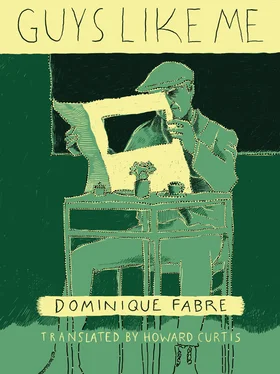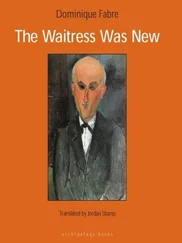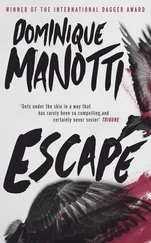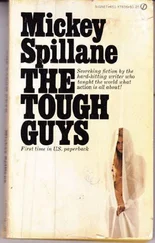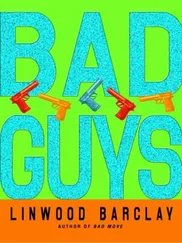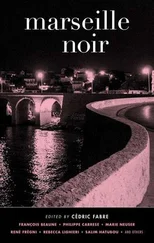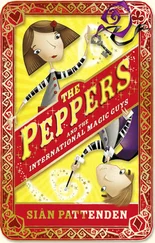I stood up again, I decided to give him a ring to suggest we have a meal together, if he had time. They were going to move soon. The storage facility at the port of Gennevilliers was another of those old memories I didn’t cherish. Just after the divorce, I lived all over the place, and sometimes, later, Benjamin and I even spent the weekend in a furnished room rented by the month in Bécon-les-Bruyères, because I know the landlord. I filled out his social security statements and the papers for his accountant instead of him, to thank him. He could have been one of those guys walking up and down the boulevard near where Marie lived. Or else a guy like him. I always felt better after a good quarter of an hour near the Seine.
At home I waited until evening. I called my son but it was Anaïs who picked up, how are you?
“Yes, we’re exhausted, we’re still packing. Ben’s in the basement, he’ll call you back, OK?”
He called back ten minutes later, was I still on for the storage facility the following Saturday, was it all right with me? I said yes, preferably in the morning. Then I don’t know how it happened, but we started talking about scooters, and he laughed, I’d been wanting one for so long, it might be better if I gave up the idea, unless maybe I waited until winter? That was what decided me, I think. That and all these other complicated desires to go around the old places I’d known in my life. It wouldn’t take me more than ten minutes to get to Beaujon if I had a scooter. To get to the office, I could always park near the railroad station at Pont Cardinet.
“How’s Marie?”
“Not very well.”
I heard him stiffen at the other end, he must have made a sign to Anaïs— oh, those irritable signs his mother made, I remembered them so well — what’s wrong with her? She has breast cancer, I told Benjamin, she went into Beaujon today for an operation. She should pull through. That was the phrase I’d heard more than once, it came to me like that without thinking. Benjamin was silent at the other end.
“Maybe we could meet before Saturday, if you like.”
“Yes, if you like, how about coming to dinner?”
He whispered some things to Anaïs and then said no, we’re busy, can you come here? That way you’ll see the mess we have! Marie had switched off her cell phone. The message on it wasn’t one she’d recorded herself, and since it bothered me that I hadn’t been able to speak to her, I made a detour and went past Beaujon, just to wish her good night from the side where the windows on her floor were. I don’t know why I had the impression that would help her without her being aware of it. After all, nobody would know apart from me, but anyway.

Marco did the same thing sometimes. When his son wasn’t doing well, he’d go to the church at Porte de Champerret and light candles, like an idiot. He’d never set foot in there before he was forty, and he didn’t tell anyone about it, not even Aïcha. Of course it hadn’t cured Antoine of his addiction, he would always be an ex-junkie, with chronic hepatitis and a criminal record, but in his opinion it was thanks to the candles that he’d always had the courage to visit him in the hospital, in rehab, and at Fresnes prison, where his son had done six months, and to look him in the eyes. It was just a matter of finding places where guys like him and me could be alone and quiet for a moment, to do their black or white or blue or pink or whatever magic. I got to their place around nine in the evening. It was really nice to see them again, surrounded by all those boxes. When he came into the kitchen, Benjamin asked me to come and help him, and he told me that his mother had asked about me.
“Oh, yes?”
“Yes.”
He was handsome, my son, with his curly hair tumbling over his forehead and his eyes still like a child’s, despite his job in the labs in Switzerland, and maybe later, in the United States. By the time he finished studying, he’d be over thirty.
“And what did you tell your mother?”
“Oh, that you seemed to be OK.”
“You said the right thing,” I told Benjamin.
Do you mind if I pull down the curtain? The previous week I’d read in F. Scott Fitzgerald’s biography that he had short legs and was a chronic alcoholic and full of hang-ups, one night when he was drunk he took Ernest Hemingway into the toilet of a bar and asked him to tell him if he was normally endowed, and Hemingway apparently did nothing to reassure him. He even told the story, which just goes to show. I should have taken more interest in books earlier in my life. After my divorce, and even in the last two years of our life together, I’d been incapable of concentrating on anything. We finished eating. Anaïs started piling up books and papers from her classes. The edge of each colored folder had the year written on it. She had no idea what she was going to do in Zurich. She seemed quite down. She had a new tattoo on her lower back, which had hurt a fucking lot, as she put it, do you want to see? Benjamin turned to me with a smile, what do you think? It was worth it, I said. Benjamin laughed and shrugged, it was a blue and black eagle with its wings spread. She had a new one done every year, for her birth-day. This one had been a gift from Ben. I’d already seen some of them at the seaside in previous years. I didn’t really know Anaïs well. They kissed, and suddenly the thought of Marie’s illness hit me really hard, that shit. I’d go past the hospital again this evening, I’d have to ask her what time she went to sleep, so that I could call her without disturbing her. We carried the heavy things together, we pushed them into the hallway. I was sweating like a pig. They’d have friends to help them at the storage facility in Gennevilliers but I was welcome to come, when was I going to the hospital? Visiting hours are in the afternoon, aren’t they, could you come in the morning? No problem, yes, I’ll come on Saturday morning. I got back in my car at midnight. Anaïs gave me the rest of the apple pie, that was nice of her. I left a message on Marie’s cellphone. I missed her a lot that night. There was no one on my street. I found a parking space straight away. I had so many things to do now. I was scared I wouldn’t manage. I fell asleep trying not to think about it, not to tell myself anything about Marie’s illness, but there was no point trying, with guys like me. I remembered some very old things too, I dreamed about my childhood. That doesn’t happen often these days. It seemed quite beautiful now. Why? Maybe because I didn’t have much time left? And then finally it all calmed down, as if nothing had happened, just like that, because it was the next day.
The weather was really nice now. It was easier for me to get up in the morning. As I waited in the station for my train, I’d smoke a cigarette and go over what I had to do. My colleagues in the office were vaguely in the know, and I’d started getting there an hour earlier than them in the morning, but I’d leave on the dot to get to Beaujon. The whole time, it seemed to me that I was being followed, or spied on. Like with Larrieu, I’d run into him on one of the floors or on the street and he’d ask me how I was. Or else the girl on the switchboard, over the past few years I’d gotten into the habit of joking with her, and now she was openly ignoring me, as if I was in trouble with the law. I had to get a grip on myself. Nobody’s interested in a guy like you, old chap . Anaïs had found the original expression in Gatsby , old chap. I hated that expression. But I was finding it difficult to put on a brave face in the office. I made a few mistakes, and on two occasions, a file I’d approved came back onto my desk, after going up three floors, with a post-it and some initials in red. I mustn’t fall behind, they didn’t say anything but there were a number of guys like me they were waiting to see make mistakes.
Читать дальше
